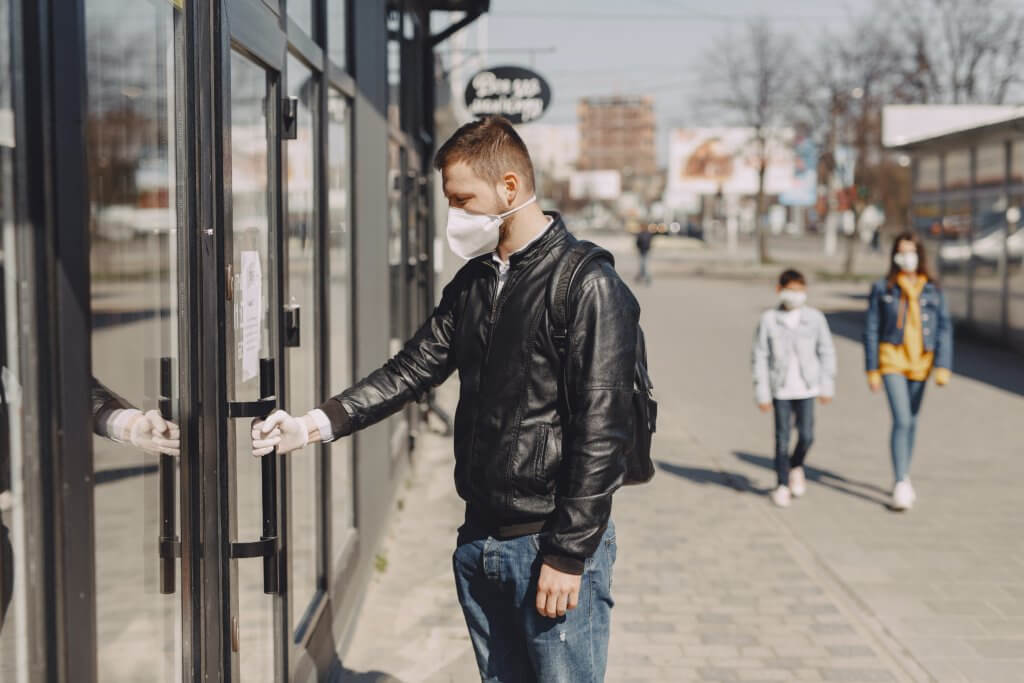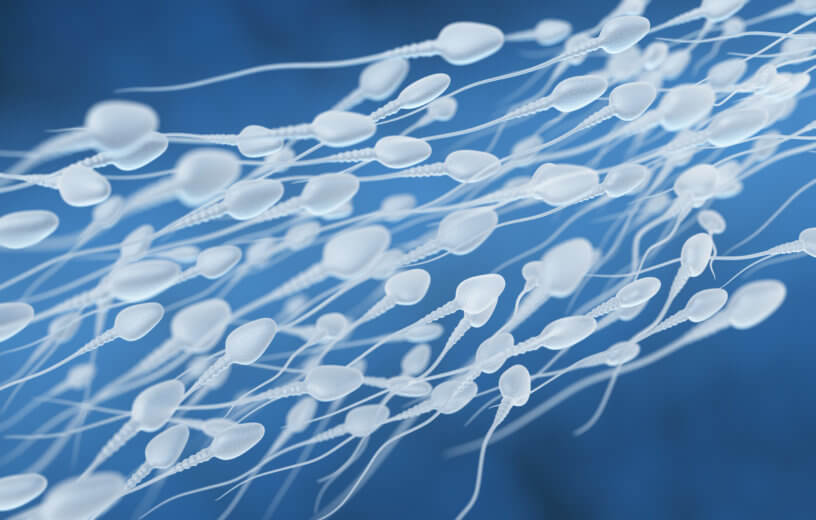COPENHAGEN, Denmark — Men experience a significant long-term decline in semen quality after contracting COVID-19, even if it’s just a mild case, new research reveals. Scientists have discovered that men’s sperm concentrations and the number of motile sperm decrease considerably, persisting for more than three months after recovery from a mild infection.
Despite the body’s production of new sperm during this time, there seemed to be no improvement in sperm quality or concentration, according to Professor Rocio Núñez-Calonge, a scientific advisor at UR International Group at the Scientific Reproduction Unit in Spain.
“There have been previous studies that show semen quality is affected in the short-term following a COVID infection but, as far as we are aware, none that have followed men for a longer period of time. We assumed that semen quality would improve once new sperm were being generated, but this was not the case,” explains Prof. Núñez-Calonge in a media release. “We do not know how long it might take for semen quality to be restored and it may be the case that COVID has caused permanent damage, even in men who suffered only a mild infection.”
The researchers observed deteriorating semen quality in some men who sought assisted reproduction treatment in Spain following a mild COVID-19 infection. The team then decided to further investigate whether COVID-19 could have influenced this decline in semen quality. As the creation of new sperm takes approximately 78 days, Prof. Núñez-Calonge deemed it appropriate to assess semen quality at least three months post-COVID recovery.
Between February 2020 and October 2022, the research team recruited 45 men who were attending six reproductive clinics in Spain for the study. All had a confirmed mild COVID-19 infection and the clinics possessed data from the analysis of semen samples taken before these men were sick. Another semen sample was collected between 17 and 516 days after infection. The average participant age was 31 years-old and the median time elapsed between the pre and post-COVID samples was 238 days.
The researchers analyzed all samples collected up to 100 days post-infection and a subset of samples taken over 100 days afterward. They discovered a “statistically significant difference” in semen volume (a 20% reduction), sperm concentration (a 26.5% reduction), sperm count (a 37.5% reduction), total motility (a 9.1% reduction), and live sperm numbers (a 5% reduction).

According to Prof. Núñez-Calonge, total sperm count and motility were the most severely affected parameters. Half of the men displayed total sperm counts that were 57 percent lower post-COVID compared to their pre-COVID samples, while the sperm shape remained largely unaffected. After evaluating the subset of men who provided samples more than 100 days after COVID-19 infection, the team found that sperm concentration and motility had not improved over time.
“The continuing effect of COVID infection on semen quality in this later period may be caused by permanent damage due to the virus, even in mild infection. We believe clinicians should be aware of the damaging effects of SARS-CoV-2 virus on male fertility,” the study author comments.
While it is known that the SARS-CoV-2 virus can affect the testicles and sperm, the exact mechanism remains elusive. The researchers suggest that inflammation and immune system damage seen in patients with long COVID might be implicated.
“The inflammatory process can destroy germ cells by infiltrating the white blood cells involved in the immune system, and reduce testosterone levels by affecting the interstitial cells that produce the male hormone,” notes Prof. Núñez-Colange. “It should be mentioned that impairment of semen parameters may not be due to a direct effect of the SARS-CoV-2 virus. There are likely to be additional factors that contribute to long-term sperm parameters decrease, but whose identity is currently unknown. Furthermore, we did not measure hormonal levels in this study: intense changes in testosterone, a key player involved in male reproductive health, has previously been reported in COVID-infected male patients.”
The research team plans to extend the study to monitor semen quality and hormonal status over a more extended period. They advocate for additional research on the reproductive functions of men after COVID-19 infection to ascertain whether the observed fertility impacts are temporary or permanent.
“This is interesting research by Prof. Núñez-Calonge and her colleagues and shows the importance of long-term follow-up of fertility patients after a COVID infection, even if it’s a mild infection. However, it’s important to note that the semen quality in these patients after a COVID infection is still within the World Health Organization’s criteria for ‘normal’ semen and sperm,” applauds Prof. Carlos Calhaz-Jorge, ESHRE chair and member of the Northern Lisbon Hospital Centre and the Hospital de Santa Maria in Portugal. “So, it is unclear whether these reductions in semen quality after a COVID infection translate into impaired fertility and this should be the subject of further research.”
These findings were presented at the 39th annual meeting of the European Society of Human Reproduction and Embryology (ESHRE) in Copenhagen, Denmark.
You might also be interested in:
- Male infertility may be a new symptom of long COVID
- More than 200 COVID ‘long hauler’ symptoms identified, many lasting beyond 6 months
- New test finds intact sperm in infertile men, offering hope for conceiving children
South West News Service writer Stephen Beech contributed to this report.

